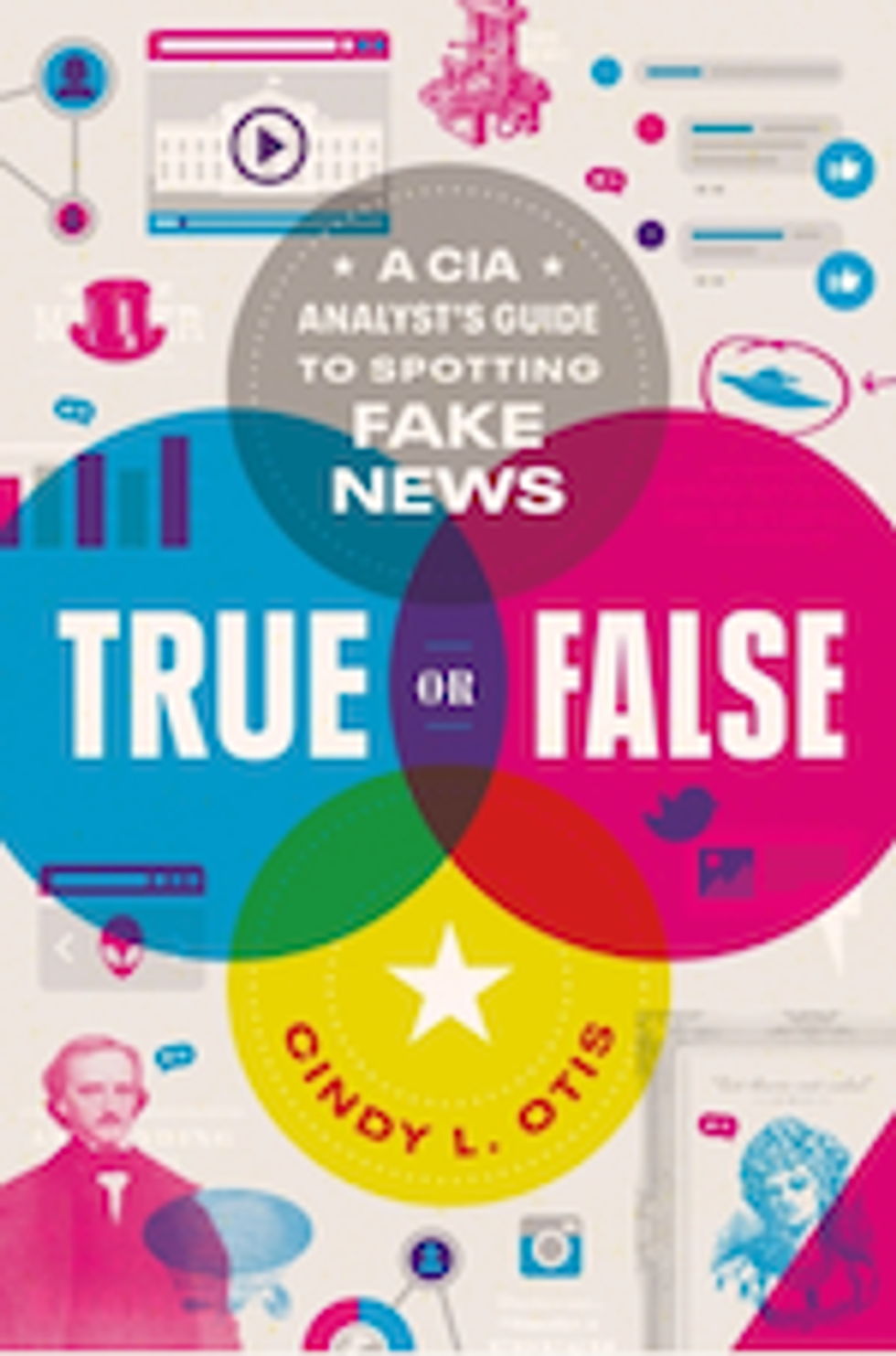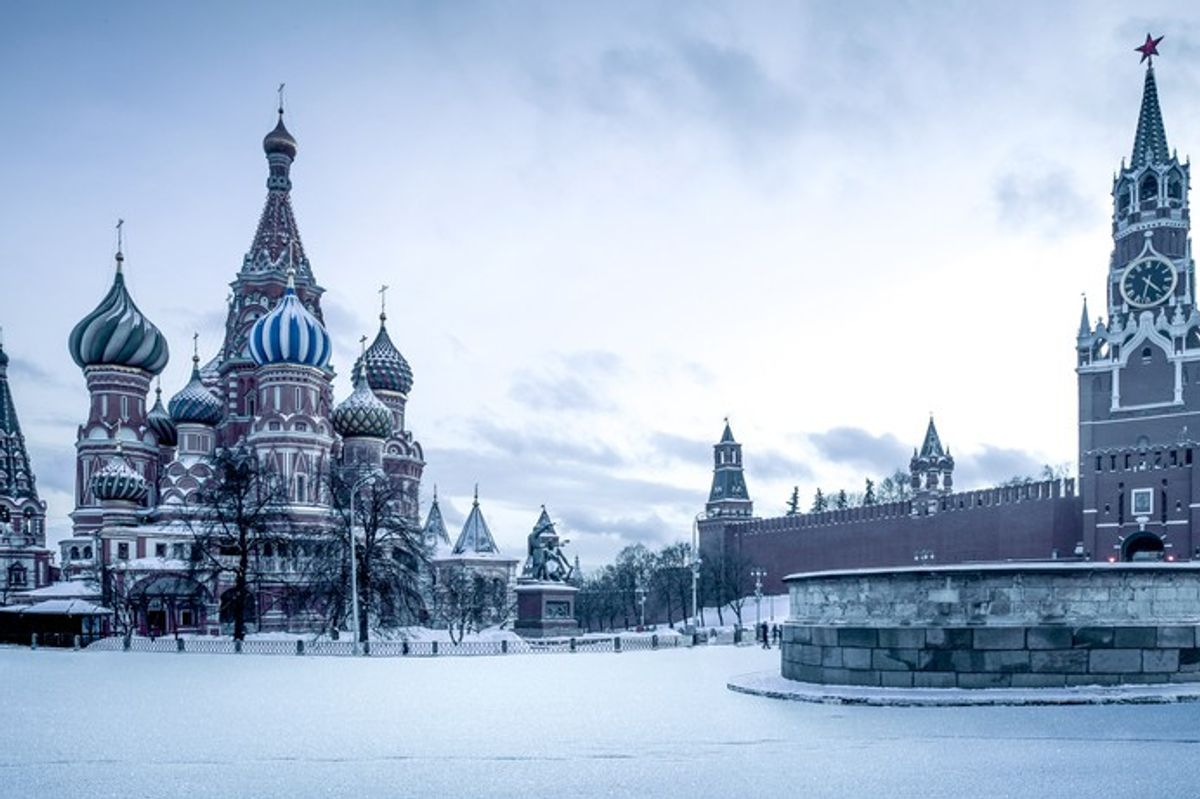Ever wonder how a CIA Analyst spots fake news? A new book out today by former CIA Analyst Cindy Otis, True or False: A CIA Analyst’s Guide to Spotting Fake News takes a crack at sharing the kind of analytical thinking that helps you know what you’re reading online and on your social media channels. The Cipher Brief spoke with Otis about the current state of disinformation, how it’s being used to affect national security, and how you can spot it.
Our conversation has been lightly edited for length and clarity.
The Cipher Brief: Let’s start with the basics. How are people (and sometimes nation states) using information – and disinformation to manipulate national security outcomes?
Otis: We're really in unprecedented territory in terms of the scale and scope of misinformation and disinformation that are circulating compared to other times throughout history. We're in this perfect storm scenario where so much false information is circulating on a minute-to-minute basis across so many platforms. Everything from social media platforms to texting and messaging apps and websites. For disinformation researchers, it's a challenge just to keep up day-to-day and watching narratives being pushed, either intentionally - to manipulate and influence - or unintentionally - people who are just spreading misinformation.
We have a U.S. Presidential election, we have the pandemic continuing to play out in the United States, and then on top of that, we have the whole issue of the results of the election and the development of the coronavirus vaccine, hopefully, and a lot of misinformation and disinformation already swirling about both of those things.
The Cipher Brief: What does that mean for those of us who are likely the intended targets of disinformation? Will it be even harder to detect it in the future?
Otis: People are at very different levels in the United States in terms of their ability to spot these kinds of things. It is becoming increasingly a challenge. It's one of the reasons that I wrote True or False, to try to get people to a basic level of understanding on key identifiers they can look for, good practices and tactics that they can adopt in their various information streams and feeds on a daily basis so that they can ideally keep themselves from contributing to the problem.
It is getting harder in large part just because of the sheer amount of stuff that's circulating from so many different teams. I look at my own informational habits - everything from social media platforms that I use, which are several - to all the different websites that I visit on a daily basis, all of the different news outlets I consult, it's a lot.
People are just getting overwhelmed with information. As a result, it makes people weary and increases anxiety and stress and emotions. But really, disinformation actors are seizing on it because tapping into those emotions –– panic, fear, anger –– all of those things are ways that you get the stuff to spread pretty successfully. It's turning off those critical thinking skills that people might otherwise have. We know when they confront a piece of information in a different environment, they might stop and ask themselves, "Okay, can I trust this? Who's it from? Who's sharing it?" The environment that we're in right now shuts all of those things down. So, it's harder to spot from that perspective as well, just because it shares the amped-up tension of our current realities.
Then on top of that, you also have the number of actors that are using disinformation for various reasons, whether it's for ideological reasons or financial reasons or a mix of both. You have more groups, governments, and individuals turning to disinformation as a tactic in ways that they weren't before. The number of players has increased, which again, makes it difficult for folks to make sense of what's showing up in their feeds and on websites.
The Cipher Brief: It's overwhelming to try to put on the critical thinking cap for everything, but you almost have to, especially if you're on social media. What are some of the tried-and-true lessons learned that people who pick up your book are going to learn?
Otis: The book is really two pieces. The first piece is looking at the history of disinformation, misinformation, and fake news, and how they have all been used throughout time to influence events that most readers will be familiar with. I did that piece because I felt it was really important to drive home that this isn't a new problem. As a result, there are tools and tactics that we have learned from these historical case studies that can help us to this day. I also wanted to bring in an element of hope, because this can often be a very depressing field. Look, this has been around for this long and we're still here. Right? We're still surviving. We're still going on and the world hasn't ended. So that's the first piece of the book.
The second piece is that actionable guide where I walk the reader through everything from what to look for in your social media feed (particularly during a breaking news event or a crisis situation where information is moving quickly) to how to recognize and accept that we all have biases and individual perspectives that absolutely change the way our brains process information, to what things to look out for in photos that might've been manipulated or used out of context. It goes all the way down to that level.
A lot of it is just looking into the source of the information. I'm the one who always asks, “Where did you get that from? Where did you read that? What is your source?” I mean, it's a very basic question and the answer is usually, "I think I read it on a Facebook post or I think it was a YouTube video or it was a website." And you drill down to "Okay. But what, and who? Who was in that video? Who was talking?" And people often just forget to question why somebody might be pushing a particular narrative and who they are.
The Cipher Brief: Where do you think we are headed with this issue? And what can we do about it right now?
Otis: I have to be hopeful because I investigate these things every single day. I live and breathe what is showing up in these platforms and hunting down disinformation actors and doing attribution work and all of that. I have to cling to the idea that it can get better, that there are things that people like you and I can do to encourage better practices and teach people about the tools and tactics that they can implement in their daily lives. I think there are a couple of pathways ahead of us.
Clearly, we need more investment, both by government, the private sector, and elsewhere in digital media literacy training, in schools, but also for members of our community who are in different age brackets. They don't have the access to training resources that you might get if you're a student in school. That's a huge piece, and I do think that if we are not investing in that as a country and investing very hard in that, particularly in the next couple of years, things aren't going to improve.
Another concern I have is that there is a growing community of disinformation researchers and technology firms that are delving into the space. I often worry that this is such a common topic now, that there is the risk of it going the other way. I think we probably all see that in our social media feeds where someone makes an accusation against somebody who disagrees with them on their posts, and they get accused of being a Russian bot.
There's a lot of talk about the Russians as if they're this massive puppeteer and all information spaces are controlled by them. That's a really big cause for concern from my perspective. One, it's not accurate. They don't have that capability. The fraction that they make up on this issue is, like I said, a fraction. It also is very harmful for communities to get in that mindset of “everybody who disagrees with me is a Russian bot or a bot in general”.
The Cipher Brief: Where do you fall in the whole conversation around whether the government needs to take a leading role in this and actually create an office that is dedicated to nothing but countering and educating the public about disinformation and misinformation?
Otis: Government can't solve it on its own. My approach is that it’s an all-of-us problem. There's a role for government. There's a role for the private sector. There's a role for academia and nonprofits and think tanks. And of course, the huge element of individual people as well, learning these skills. But the government absolutely has to take more of a role than they have. This is going to take significant government involvement in things like regulations, because we're essentially relying on for-profit social media platforms to make their own determination about what is safe, what is harmful, what could cause real-world harm, what is free speech, all of those really big questions.
Government really needs to take a leading role in providing funding for organizations that are leading the way in digital literacy training. They need to invest significantly more in election security and looking at foreign interference. There's a great opportunity for public-private partnerships. Government working with tech companies that are trying to build innovative solutions to help address this problem at scale.
So those are all the areas they should be focusing on and that there's a lot more to do than what they're doing.
The Cipher Brief: What would you tell people to keep top of mind for, let's say the next six months, which will include the time of the election, when it comes to spotting disinformation?
Otis: I think we're going to see more disinformation in the coming months. This is domestically generated and foreign-generated and aimed at trying to discourage particular communities from actually showing up on voting day.
That's really important to keep in mind. I'm spending a lot of my time these days in the investigations world. I'm looking at very large networks of American news websites that are run by political consulting firms that own digital media advertising arms as well. They use those websites to spread particular conspiracies and ideologies and political leanings and messages, and also to collect a significant amount of data on their visitors and then use that data to help political campaigns from particular sides get elected.
An increased awareness about how modern-day political campaigning in democracies like the United States is de facto normalizing disinformation tactics in a way that I think is really harmful to our democratic process.
Disclaimer: The Cipher Brief, like other Amazon Affiliate partners, gets paid a small commission based on purchases made via the links provided in this story
Read more Under/Cover book reviews in The Cipher Brief
Read Under/Cover interviews with authors and publishers in The Cipher Brief
Interested in submitting a book review? Check out our guidelines here
Sign up for our free Undercover newsletter to make sure you stay on top of all of the new releases and expert reviews
Read more expert-driven national security news, insights and perspective in The Cipher Brief















